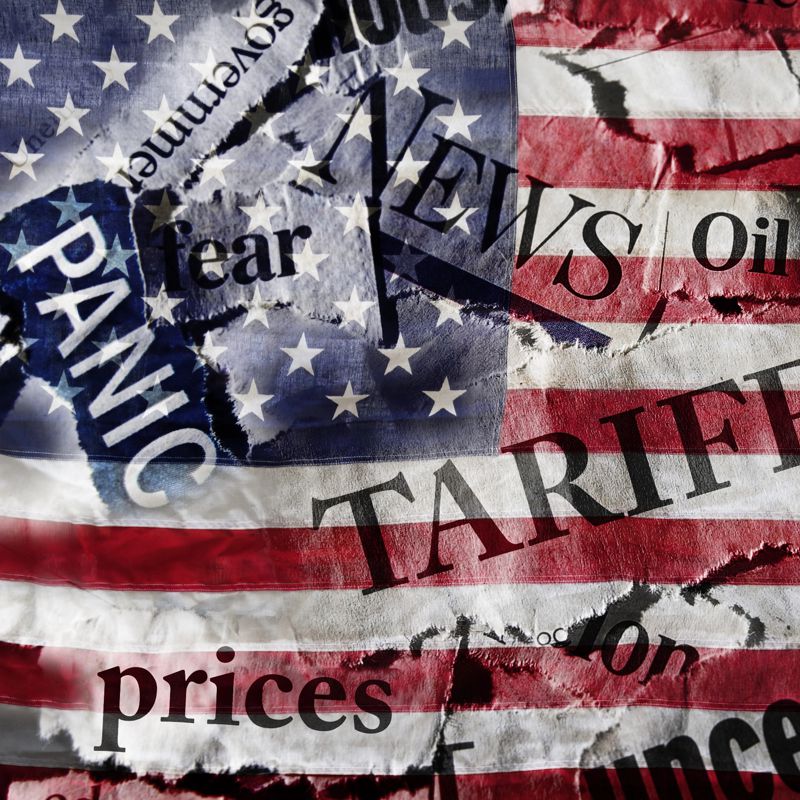Tariff Update – May 28, 2025
Washington, DC, 29 MAY, 2025 – The US Court of International Trade (CIT) issued a 49 page decision unanimous opinion ruling that the IEEPA tariffs are illegal. The Trump Administration has already appealed to the Federal Circuit. Important note - CBP has not issued any updates or guidance.
The IEEPA statutes at issue:
(A) are the Fentanyl/ Migration tariffs that started in February of this year (which were the 20% tariff on Chinese products and the 25% tariff on Canadian and Mexican products (but 10% on certain energy products and potash) and
(B) the Reciprocal Tariffs that started in April of this year (which are currently at 10% until early July for most countries, but 10% for China until August - but were previously as high as 125% for China).
The CIT judges found that the IEEPA tariffs were illegal for the following reasons:
- while the IEEPA statute allows the President to "regulate" importation, in the context of the IEEPA statue and its history, "regulate" does not include the unlimited power to tariff or tax imports.
- the "fentanyl" tariffs do not "deal with an unusual and extraordinary threat," as required by IEEPA, because they act more as "leverage" with respect to China, Canada and Mexico rather than dealing directly with the specific fentanyl problem.
The CIT further concluded that the IEEPA tariffs should be declared unlawful as to all importers, not just the Plaintiffs in order to ensure uniformity.
While the CIT's decision is certainly welcome news for importers, who are the ones that paid the IEEPA tariffs, importers must keep the following in mind:
- This evening, the government requested the CIT to "stay" execution (implementation) of today's judgment pending resolution of the government's appeal. The Plaintiffs have until June 18th to respond, although the response, and even the CIT's ruling on the "stay," may come sooner. This means the government asked the CIT to preserve the status quo until the appeals process is complete.
- Absent the appeals court and/or the Supreme Court "fast tracking" the appeal, any appeal will likely take another 1 to 2 years. Thus, if the CIT agrees to issue a "stay" (maintain the status quo) - that means that the government will continue to collect the IEEPA tariffs for the next 1 or 2 years while the appeals process runs its course. This, in turn, means that importers will continue to have to pay the tariffs for another year or two. Accordingly, while the CIT had ordered the government to take administrative measures (such as CSMS Messages) to implement the CIT's decision (i.e., to terminate the tariffs) in the next 10 days, we do not anticipate that CBP will terminate the requirement that importers pay the tariffs any time soon. This will only happen if the CIT denies the government's request for a stay of the judgment. Accordingly, until the appeals process is complete, e.g., 1 or 2 years from now, importers, unfortunately, likely will have to continue to pay the IEEPA tariffs. This could change if the CIT denies the government's motion to stay the judgment. We will provide further updates once the CIT decides the government's motion to stay.
- Regarding refunds, it also is important that the CIT did not order the government to issue refunds to every importer - it only ruled that the IEEPA tariffs are illegal for all importers. It is noteworthy that the private party Plaintiffs in today's decision had requested refunds (damages) as part of their complaint, but the CIT did not explicitly order refunds in today's judgment. Plaintiffs will likely follow up with the CIT on that issue, but given the amount of money at stake for the government, we do not anticipate CBP will voluntarily refund tariffs to all importers - either now or at the end of the appeals process (assuming the government loses all of its appeals). Rather, the most likely scenario is that importers will have to file their own individual refund lawsuits. Whether protests and post summary corrections (PSCs) could also potentially be refund vehicles at the end of the appeals process or sooner should the government not request or obtain a stay, remains to be seen - although we are skeptical. We will provide further guidance on this issue should IEEPA be permanently struck down after appeal and should refunds be permitted.
- Today's decision does not strike down or eliminate any tariffs that are not IEEPA tariffs. This means the Section 232 (auto/auto parts and aluminum/steel, etc.) and Section 301 tariffs remain in place.
As always, we will advise you of any updates. And because this appears to be a very fluid situation, you will be hearing from us soon.
Return to Flash News Page...

